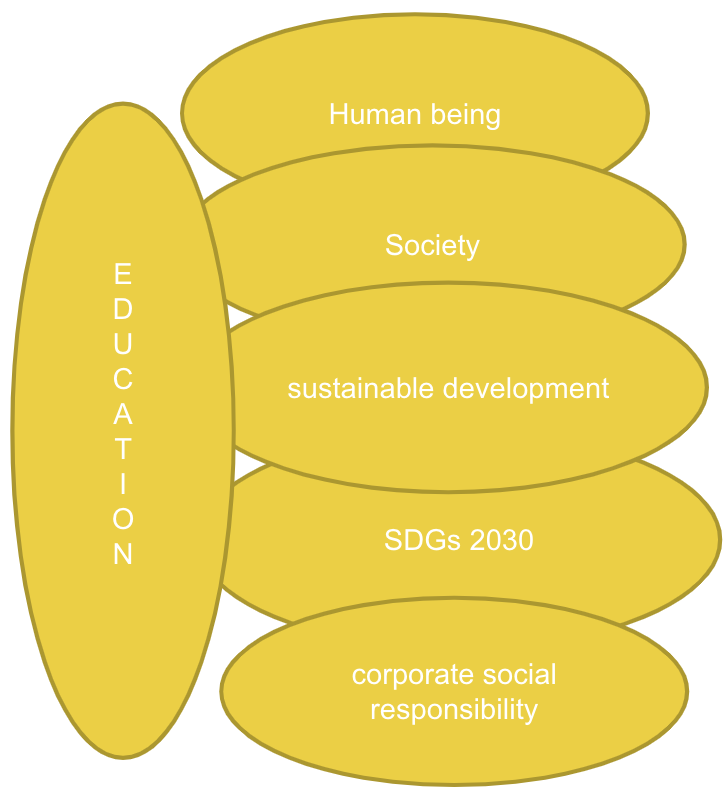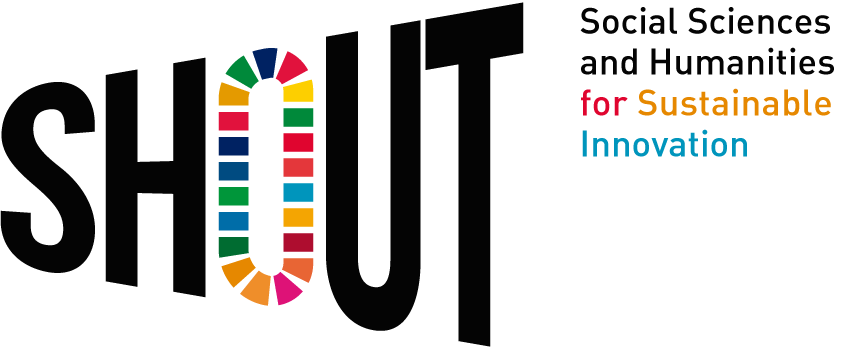The role of SSH in developing soft skills/ generic competencies
What are soft skills/ generic competencies?
- Set of skills, knowledge, and attitudes that allow to complete a task in a given context, when mobilized in an integrated manner.
- These are also called transversal and define characteristics referring to the general behavior of the person, independently of the specific technical knowledge. For example: communication skills and analytical skills.
Generic competencies – transferable, multifunctional knowledge, skills and
attitudes that people could learn and develop in different ways and learning environments, and apply
across a variety of job and life contexts, have been capturing growing attention all over the world (Fung at al, 2006)
Three types of generic competences:
- Instrumental competencies: cognitive abilities, methodological abilities, technological abilities and linguistic abilities;
- Interpersonal competencies : individual abilities like social skills (social interaction and co-operation);
- Systemic competencies: abilities and skills concerning whole systems (combination of understanding, sensibility and knowledge; prior acquisition of instrumental and interpersonal competences required)
Read this:
https://www.unideusto.org/tuningeu/competences.html
„In particular, the universities will promote the benefits of SSH study and research in supporting generic skills such as: skillful communication, critical and independent thinking based on sound evidence and transparent analysis, the ability to recognize and move beyond a personal perspective, the ability to acknowledge and respect differing perspectives by developing an empathy with those holding them, an ability to accept ambiguity, and a recognition that local conditions and cultures can be as important as universal laws, especially when the intent is to change rather than just describe the world. In a fast-changing world in which we will face many new national and global challenges, the role of social sciences and humanities research will be of vital importance in enabling the nations of the world and their citizens to think critically, be tolerant, and become more innovative and inclusive” (Leiden Statement, 2014).
Read this:
„Many of the skills which AHSS* graduates develop may be described as generic graduate attributes, shared across all subject areas, but AHSS provide a particular context for their development which means that AHSS graduates demonstrate these skills in distinctive ways. By developing skills with an understanding of the human dimension in which they will be applied, AHSS students are able to use them in employment, research and wider society in ways which are complementary to the skills and knowledge gained from other disciplines…….We have identified a common core of skills shared across the disciplines of AHSS. These can be divided under three broad headings: communication and collaboration; research and analytical skills; and attitudes and behaviours characterised by independence and adaptability…………Their skills of critical analysis, problem solving, negotiation and communication, speaking other languages and understanding other cultures has intrinsic value with huge benefits for society, contributing to social cohesion at home and the UK’s prosperity and security abroad. ”
* The arts, humanities and social sciences
„Social Sciences and Humanities seek to illuminate the human condition and explain how economies, cultures and societies function. In addition to the intrinsic value of this quest, the insights it generates can guide – and promote – reasoned political and public discourse, by bringing fresh knowledge and ideas to the fore.“
The role of SSH in the development of generic competencies:
- offer an open view of man, society and the world;
- advocate interdisciplinarity and transdisciplinarity
- encourages freedom and independence of opinion
- provide analytical and synthetic skills
- advocate dialogue, debate and deliberation – communication and collaboration with others
- encourage asking questions – why? and how?
- seek an understanding of content, facts and knowledge
- connect critical and creative thinking
- advocate an intercultural approach
- emphasize personal and social responsibility
- apply personal integrity and scientific rigor in the process of researching social and global problems
Social Sciences and Humanities – competencies
critical thinking
explain why responsibility is important
understand the role of the man in society
ask questions
teach us about ourselves and others
Integrate different perspectives
develop curiosity
analyze different cultural perspectives
demonstrate autonomous and independent thinking
creativity
explain the importance of empathy
defend ethical values
lifelong learning
be responsible in using quantitative and qualitative methods for understanding human behavior
critical analyze global and local problems
demonstrate autonomous and independent thinking
to raise awareness of the importance of the environment
prioritize sustainability
A new kind of social science is needed, one that is bolder, better, bigger, different:
- Bold enough to reframe and reinterpret global environmental change as a fundamentally social process
- Better in terms of infusing social science insights into real-world problem-solving
- Bigger in terms of the need for more social scientists to address the challenges of global environmental change directly
- Different in the sense of changing the way the social sciences think about and do science – its theories, assumptions, methodologies, institutions, norms and incentives, to help meet the vexing interdisciplinary and cross-sector challenges society faces.”

Read this:
https://en.unesco.org/wssr2013
„With the advent of democracy and modern industrial conditions, it is impossible to foretell definitely just what civilization will be twenty years from now. Hence it is impossible to prepare the child for any precise set of conditions. To prepare him for the future life means to give him command of himself; it means so to train him that he will have the full and ready use of all his capacities” (Dewey, 1897).
